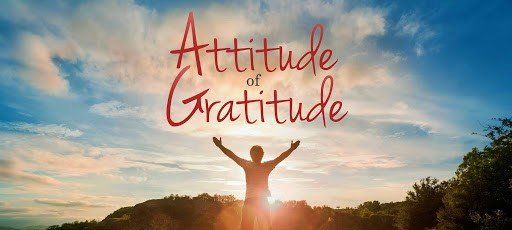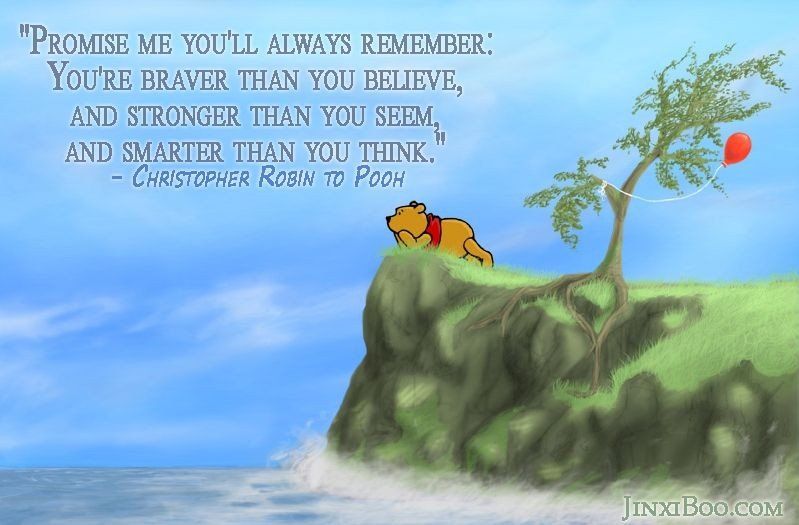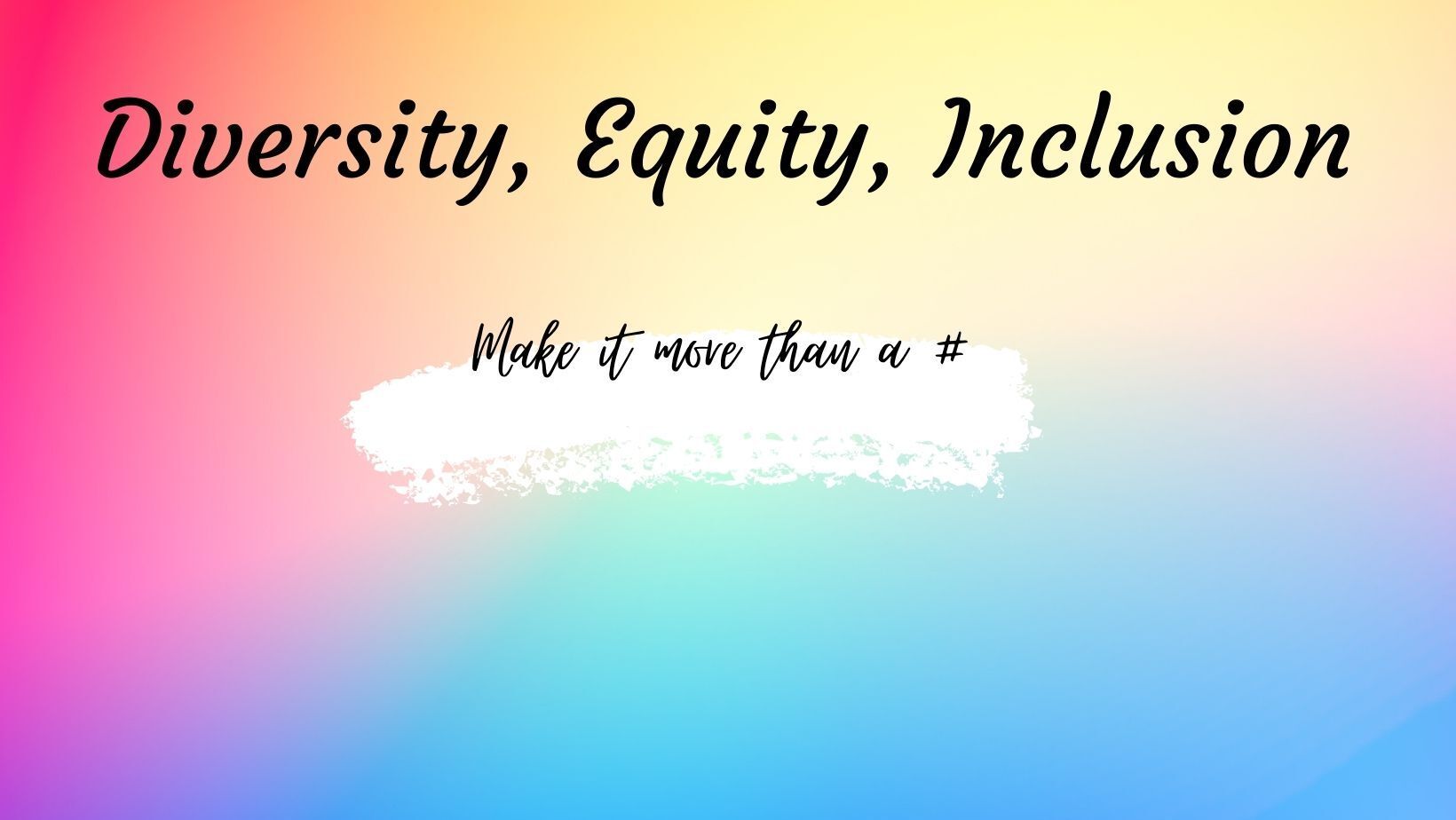
We have been living through a moment that will stand the test of times in the history books. For the last 18 months we've been outside our comfort zones and trying to manage situations that are changing not only daily but hourly. We’ve endeavoured to keep our businesses running and performing at the same high level we always did at the same time as keeping our families safe. We are practising social distance, but not social isolation and we are doing it together. So already we’ve achieved something. It’s easy to panic, I’ve had my moments, specifically whilst trying to convince my immunosuppressed mother not to get on the bus to the local supermarket. Yet in the history of the world, I don’t believe abject panic has solved anything. The lucky among us have the ability to work from home. Not everybody has been so lucky. Some have felt the pinch more than others. There are those who have had their hours reduced, Employers who’ve had to minimise work schedules, or to close down temporarily for 2 weeks. We can show our support to local businesses in a variety of different ways. Maybe buying a gift voucher from your favourite restaurant that has had to close its doors. Acts of kindness don’t have to be financial though . A sincere thank you to an employee in a store, a follow up email to a kind receptionist, or a quick check in phone call is enough. That takes me to my actual point. Gratitude. The definition of gratitude is “A feeling of appreciation or thanks” . Scientific research shows gratitude is the single most powerful way of increasing happiness and calmness . On the website happierhuman.com they state that writing in a gratitude journal (little and often) can increase our happiness by 10%. (Same rate as a significant pay rise!). We as a society are always on the grid. We’re inundated with news 24/7, especially now, and it’s easy to become pessimistic, overly negative and withdrawn. It's especially in these times we actively have to look at what we have to be grateful for. This doesn't mean we bury our heads in the sand in relation to the seriousness of a situation, it just means we also look for the light. Over the next few days and weeks please take the time to note what you’re grateful for, it will make the world of difference to your health, productivity and over all well being. I’ll start! I’m grateful for my family and friends. Even though I haven't seen them as much as I wanted, they are a constant source of support. I’m also grateful to everyone practising social distancing, wearing a mask(Really grateful!) and thinking of others. If I think what makes me grateful when I think about the last 18 months there's so much! I’m hugely grateful to our healthcare staff, to our hospitality industry, to the Italians singing on balconies, to those young people shopping for their older neighbours, to the hotels and restaurants delivering free food to the most vulnerable amongst us, for the hashtag #AplausoSanitario that trended in Spain. The challenge encouraged the people of Spain to come out on their balconies at 10 pm exactly and applaud and cheer their healthcare workers. It was amazing to watch. https://youtu.be/wPzEJWA43HY We've made progress but there's a way to go. Mind yourselves and each other, Siobhan x Here’s some further reading on happierhuman.com 31 scientific ways gratitude improves your level of contentment. https://www.happierhuman.com/benefits-of-gratitude/

I wrote this blog back in June 2020. Alot has changed since then for me but the message stays the same. Let me know your thoughts. This is by far the most vulnerable I've ever been when writing a professional blog. My experiences have been years in the making, but in reality, everything just came into focus at the start of Covid 19. It’s been just over 3 months since my last LinkedIn post. 3 months is a LONG time off LinkedIn when you're a recruiter. Ironically, that post was about a speech I delivered for Job Seekers for Intreo. (The Universe is mocking me!). Since the country shut down, I like you, have had a lot of time to think. I have gone through things that I never imagined I'd experience, let alone survive. I’ve had A LOT of time to think over that time and one topic that I could not get out of my head was Professional Grief. In the dictionary, grief is described as “keen mental suffering or distress over loss “. A record number of people are losing or have lost their jobs as I write this article. I can promise you I feel every part of this grief with those of you who are experiencing it. To many of us our careers and jobs are so much more than a pay cheque. They have increasingly become part of our identities as individuals. We build networks within the companies we work with, they become friends. In reality, we spend more time with our colleagues then we do with our actual families. Humans need to be needed, we want to add value. Our jobs give us something to be part of-an opportunity to contribute to something bigger than ourselves. Having a job positively affects our economic, physical, emotional, and mental health. So when we say someone may “lose their job“ it’s so much more than those three words depict. It’s a loss of security, of belonging, of support ,and a loss of our sense of purpose and ritual. It doesn’t matter how a person lost their job, whether it’s redundancy, termination or economic/social reasons such as COVID 19. This sense of loss or grief pays no heed to the lines between personal and professional. The feelings of worthlessness can infiltrate and assault our feelings of worth. If not acted upon, we ultimately can lose our sense of self. Trust me I know. Over the past months, we've gone through COVID 19 together. We've seen the hashtags, witnessed the heroism of our front line workers and had a shared goal, to reopen the country in the safest way possible. As Ireland begins Phase 3, and as exciting as that is, we have not even started to unpack the trauma we've gone through, both collectively and individually. The effects of social isolation, economic challenges, and job loss have only exacerbated the situation for some of us. Those who have lost their jobs or are on furlough will experience Professional Grief in addition to a multitude of other emotions. The key lesson I’ve learned is that when an external trauma happens to you, no matter what it is, the solution is inside yourself. You cannot heal yourself with external validation. When I’ve gone through trauma, I’ve had to look at myself, my life and separate other peoples’ perception of me to the person I truly am. This is some of what I have learned. Keep moving forward. Anxiety and stress can be accentuated because you feel you have no control in a stressful situation. You may not have much, but you always have control, no matter the situation, you choose your reaction and you choose your direction. The problem becomes the way. Lean into it. Do not shy away from the pain. That is where you find growth. Be Authentic. You are enough. If you are around people who make you feel less than, change your group, not yourself. There is no one else like you and you should value yourself and what you have to contribute, above all else. With that said, there’s always room for personal growth. None of us are perfect. Know and accept your flaws and work to improve yourself. You are your only competition. Work smarter. A job is so much more than a pay cheque. Find a company that encourages you to grow and improve, where you feel like you’re adding value. You don’t need to work 12-hour days to be “seen” as working hard. I have learned it’s really not appreciated. Take care of the responsibilities of your role, sign everything you do with excellence and cut out any time wasters. You are not your job and you should have time to create a fulfilling life. It is possible to do both. Choose your own path. Everyone has an opinion, and certain people are always ready to critique your actions. It’s fine to listen to advice of those who love you but ultimately you are the captain of your ship. You are not put on this earth to live someone else’s life. Work out what is important to you and put tangible steps in place to achieve it. You are not your job. Work is great. It is a privilege to have a job you love and it’s ok to be proud of what you do. You are not your job though. Do not blur the line. It can be catastrophic. If you lose your job and you have blurred the line between you as a human and you as an employee, it can crush your confidence and sense of self. Find multiple sources of joy that feed every part of you. Do not be afraid to fail. What is failure? There are so many definitions but for me, failure is a crucial step on the journey to success. Failure is a key part of progress. If you are constantly pushing yourself and living at the edge of your capabilities, you will have to develop a healthy relationship with failure. Fail early, fail often, fail forward. (Will Smith) Take the lesson from the “failure” and move forward. Do what is hard. We are faced with hard decisions all the time. Do not shy away from them. Try to take a regular stock take of your life. This includes friends, work, habits etc. It is hard to cut anything that is familiar from your life, but it is necessary for you to grow. In Glennon Doyle’s book Untamed she talks about disappointment. If she has the option of disappointing herself or someone else, she will choose the other person every time. She explains that we have to be with ourselves every day, if we break our boundaries or let ourselves down, we have to live with it in our mind all day every day. This can cause lasting damage. Be honest with yourself in relation to what is working in your life. Whatever isn’t serving a positive purpose (including people) just cut it/them out. Embrace your fears. This is a tough one because we as humans are afraid of so many things. I watched a TED talk on YouTube and the speaker was asking what would you accomplish if you weren’t afraid? Afraid of making a fool of yourself, afraid of what other people thought, afraid of your own audacity to dream or afraid of getting what you really want. Fear is paralyzing and it’s a liar. It will tell you things that are not true. Fear as with pain needs to be faced head on and as we’ve learned during this pandemic, anything worth having is on the other side of fear. What I know for sure is that you and I are stronger than we know. Trust yourself and go for it. With Love, Siobhan

I started writing this blog 3 days after George Floyd was murdered in the States. I waited to post for 2 reasons. 1- It is too close to my heart to have been written in a knee jerk reaction. 2- I realised I was not the hero of the story I wanted to be (that took a minute to process). This topic is awkward, and I feel uncomfortable. Not a great start to a blog but an important one, as the picture states, nothing ever grows in our comfort zone. Let me lead into this blog with a little bit of a back story. It will be short I promise. I am a lot of things , a Recruitment Consultant, a writer, impatient, funny, hard working. I am also mixed race. My biological Father is North African, and I was reared by a wonderful single mother and have a huge extended family who more than bridged that gap for me. My cousins, of Irish Nigerian descent, were reared with me and my mam, their mam and my Nana and Granda in a 2 bedroom house in Drimnagh. A beautifully functioning, dysfunctional family. Full of love, laughs and conversations, and now and again, almighty rows. (Nana always won) The boys and I were the on the receiving end of racist abuse growing up. For as long as I can remember. It was both verbal and physical. The words sticks and stones were often part of the conversations we had at the dinner table with our family. My Granda had more sleepless nights about the boys. He had worked in the UK as a builder during the times of “No dogs, No blacks, No Irish” and he was somewhat cynical about the worlds capacity to change. He was both right and wrong. The boys are now men and are happy and successful and my Nana and Granda had a huge hand in that. Grandad would be happy to see how the world is evolving. I tell you this story because I want you to see that even I, someone who was on the receiving end of racist abuse, and who was brought up in a home where racism was discussed openly, can drop the ball when it comes to actively opposing racism and implicit bias. The importance of being Anti-racist Not being racist is not sufficient anymore, we need to become Anti-racist. “According to the Anti-racism Digital Library, "Anti-racism can be defined as some form of focused and sustained action, which includes inter-cultural, inter-faith, multi-lingual and inter-abled (i.e. differently abled) communities with the intent to change a system or an institutional policy, practice, or procedure which has racist effects." I’m not saying this from the moral high ground . I’ve had to look at myself and my actions like a lot of people during the Black lives matter movement. I mentioned earlier, I am not the hero in this, I as a mixed-race woman had not been Anti-racist. I could say I don’t know what happened, but I do. As I grew up the name calling lessened and I got comfortable. I had a great job, I traveled. I have a privileged life, but I took my eye off the ball. I focused on me, instead of we. When I started working in Recruitment something changed. I worked with BITC and their EPIC program. There was a Ghanaian man I met at one of their events. He was phenomenal. Ridiculously intelligent, articulate, someone you would listen to speak at length. He could not for the life of him, get a job. I reached out and really thought I could help, blinded by my privilege. I tried everything with no luck. It took over a year for him to secure a permanent job. He is working now and I’m so happy and proud of him but it 100% should not have taken that long. It wouldn’t if he was white. What can we do? In the aftermath of that situation. I opened my eyes a little. I looked around within my industry in Ireland and didn’t (still don't) see many Recruiters of colour, or of any significant type of diversity including Inter-abled, inter-faith, inter-cultured. I approached management about the lack of diversity within the company and was told it was already being looked into. So I left it. I am most ashamed of that. Racism and Implicit bias pose challenges all around the world, our country is no different. In December 2019, Ireland was reprimanded by the UN specifically for its inaction in tackling racism. Brian Killoran, CEO, Immigrant Council of Ireland, said, “The UN Committee for the Elimination of Racial Discrimination undertook a fair and thorough assessment and has identified key areas for improvement. These include the urgent need for an updated National Action Plan Against Racism as well as laws which will effectively tackle hate speech, hate crime and prohibit racial profiling." Making significant change can seem like an insurmountable task but small steps make a huge difference. Recruiters, both in-house and agency and Companies themselves must see that diversity is the bedrock of innovation. In a Forbes insight study, they concluded that "A diverse and inclusive workforce is necessary to drive innovation, foster creativity, and guide business strategies. Multiple voices lead to new ideas, new services, and new products, and encourage out-of-the-box thinking. Today, companies no longer view diversity and inclusion efforts as separate from their other business practices, and recognize that a diverse workforce can differentiate them from their competitors by attracting top talent and capturing new clients." So, checking our implicit bias is not just a must as a societal social policy, it is imperative to implement for business growth and achieving long term strategic plans. To the Recruiters out there, ask yourself the below questions If you are a hiring manager or an agency recruiter, how many black people or people of colour have you placed in any role? How many black people or people of colour have you interviewed and submitted to a client/department? How many black people or people of colour are on your team? How many black people or people of colour are Managers or Leaders in your company? How many of you work for companies that talk about Diversity and Inclusion on their websites? These questions are not meant to assign shame or blame but simply highlight where we all have the opportunity to do better. And as the inimitable Maya Angelou said, “When you know better, do better.” I’m learning too and would love to hear your thoughts. Siobhan